Can UNRWA report restore confidence in the organisation?
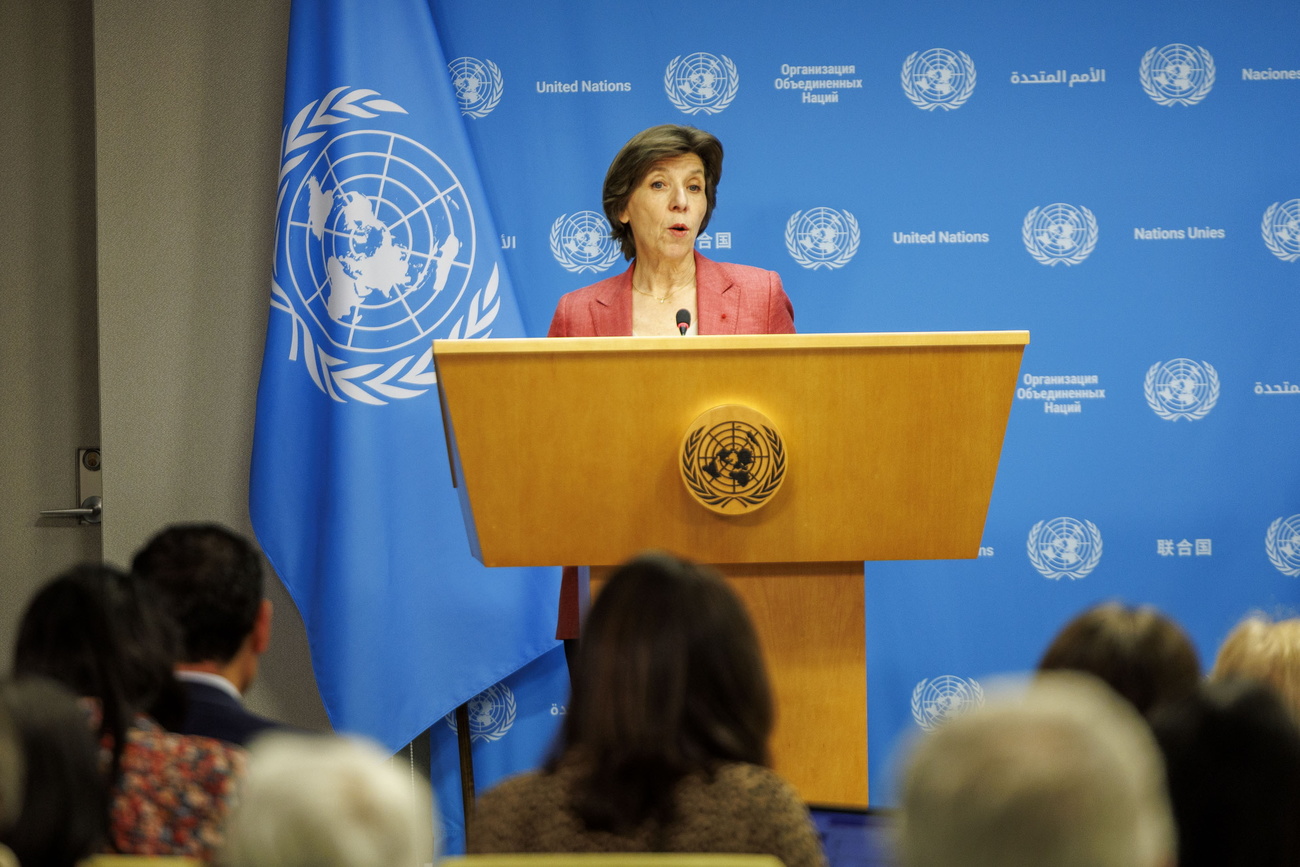
The long-awaited independent report into the neutrality of UNRWA, the United Nations agency for Palestinian refugees, does not reveal any major dysfunction within the organisation. But whether this will reassure the United States and Israel remains to be seen.
UNRWA is “irreplaceable and indispensable”, but “problems of neutrality” remain. These are the main conclusions of the “Colonna Report” – named after former French Foreign Minister Catherine Colonna, who chaired the enquiry committee.
+ Listen to the Inside Geneva podcast: what’s the future of UNRWA?External link
The independent reportExternal link on the workings of the organisation, which is headed by the Swiss Philippe Lazzarini, was published on Monday. It had been eagerly awaited by donor countries that had suspended their financial contributions to UNRWA, which Israel says is infiltrated by Palestinian militant group Hamas. But it is not certain that it will be enough to restore confidence, according to two experts interviewed by SWI swissinfo.ch.
The report was commissioned by UN Secretary-General António Guterres following Israeli allegations that 12 UNRWA employees took part in the Hamas attacks on Israel on October 7, 2023. Three Scandinavian research institutes supported the work of the enquiry.
Regarding Israeli accusations against the staff of the agency, which employs 13,000 people in Gaza, the report states that Israel has not provided any evidence. This does not mean, however, that it does not exist, Colonna said at a press conference in New York. The 12 individuals accused by Israel are the subject of a separate, ongoing investigation by the UN Office of Internal Oversight Services (OIOS).
The report reveals that the organisation, which provides emergency aid, education and health services to some six million people in the Middle East, has numerous mechanisms in place to ensure compliance with humanitarian principles, including that of neutrality. It adds that these are more sophisticated than those of other UN organisations.
Nevertheless, the committee of enquiry concludes that there is still progress to be made. It proposes some 50 recommendations to improve the organisation’s governance, neutrality and communication with donor countries.
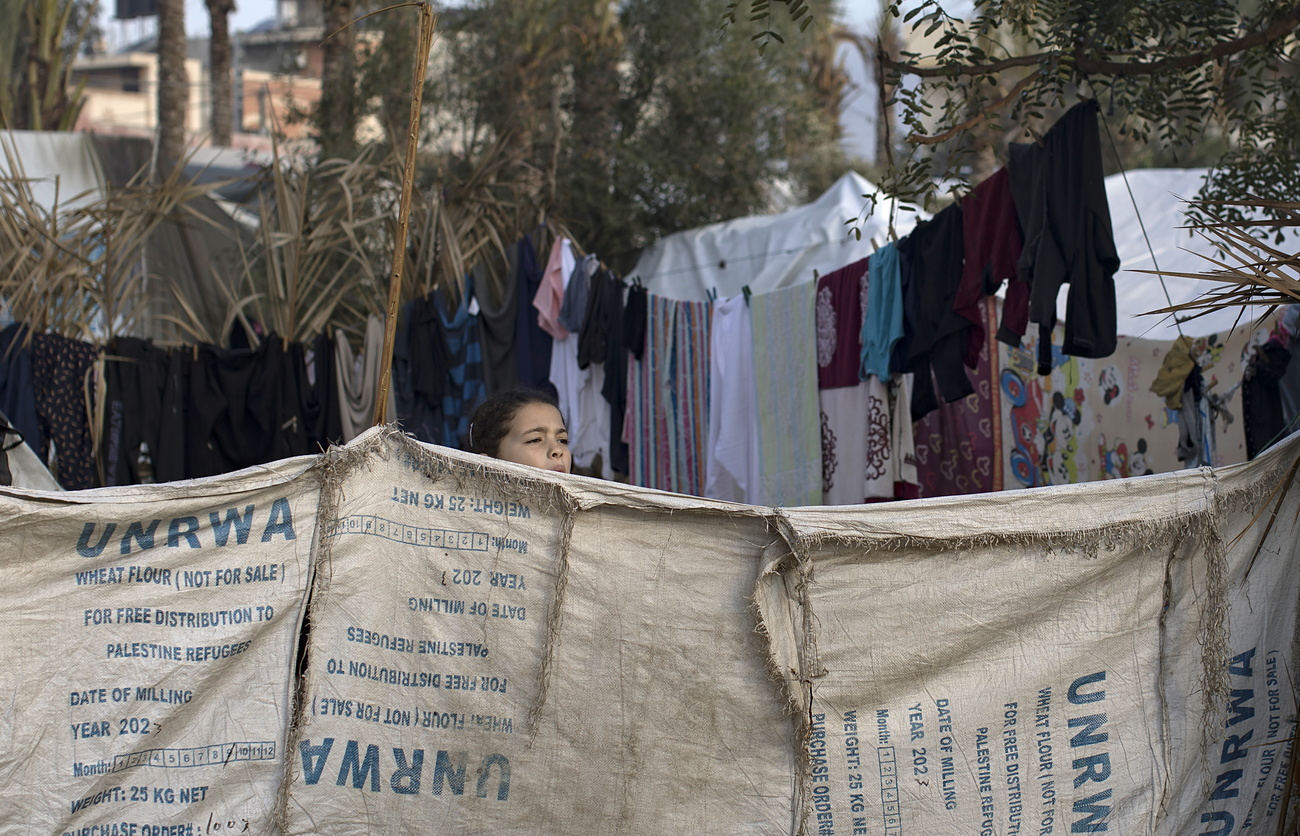
More
What are the allegations upending UNRWA’s aid efforts in Gaza?
Convincing donors
In response to the Israeli allegations, the main donor countries decided in January to suspend their financial contributions to UNRWA, resulting in a $450 million (CHF410 million) shortfall. Since then, several of them, including the European Union and Canada, have reinstated their payments, while others, including the United States, the United Kingdom and Switzerland, have decided to await the results of the investigation.
“This report will probably reassure some of the donors who were reluctant to return, by showing them that the risks associated with funding UNRWA are manageable. But I don’t think it will be enough to convince the United States in the short term,” says Richard Gowan, director of UN issues at the International Crisis Group thinktank in New York.
The US Congress, a close ally of Israel, recently decided to ban funding to UNRWA for a year and will not rule on future payments until March 2025. For its part, the Swiss foreign ministry said on Tuesday that it would “analyse the report in detail” before taking a decision on its CHF20 million contribution for 2024. The government will first consult the foreign policy committees of both houses of parliament.
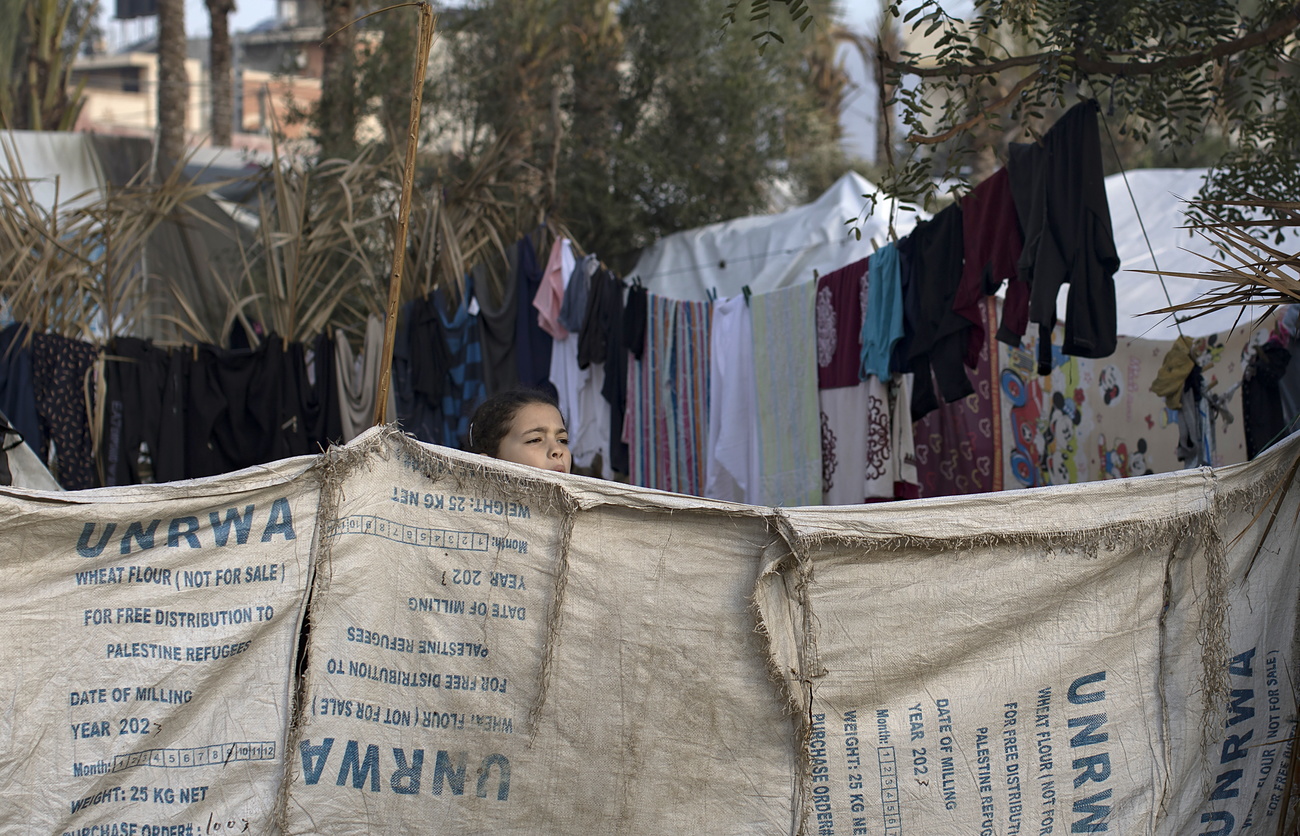
More
Switzerland to ‘thoroughly analyse’ UNRWA report before funding decision
Switzerland’s decision to suspend its funding on the basis of mere allegations, without waiting for the investigations to be carried out, has provoked criticism in the country. Asked after the publication of the report, Riccardo Bocco, professor emeritus at the Geneva Graduate Institute (IHEID), does not hide his concern: “For me, the question is on what basis do Swiss parliamentarians take decisions? Do they check the information they receive?”
Questioned on Swiss public television, RTS, on Monday evening, Pierre-André Page from the right-wing Swiss People’s Party denied that parliament had acted too quickly. “The Colonna report makes around 50 proposals for improvements to achieve greater neutrality. So I think there are some areas for improvement before we give this support,” he said.
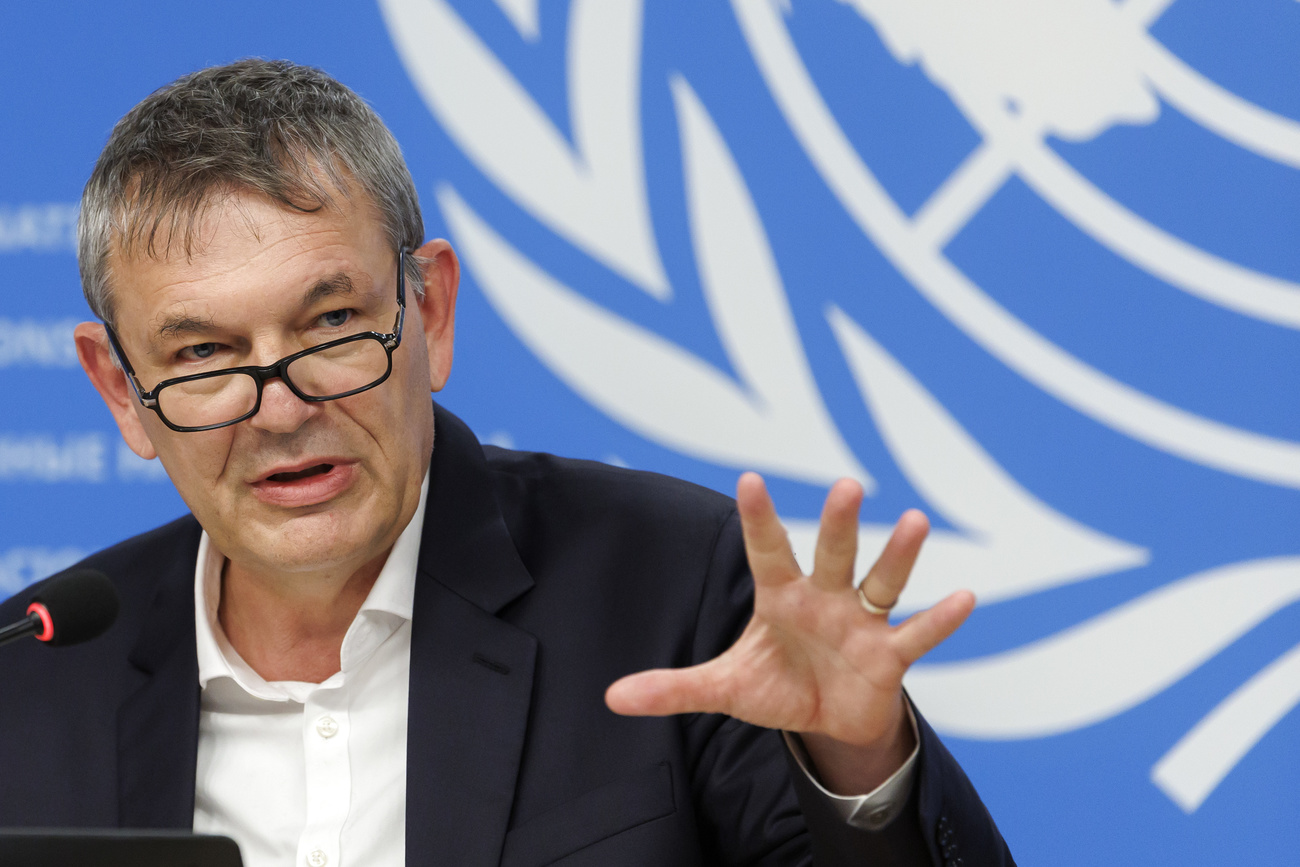
More
Philippe Lazzarini: ‘fuel is now synonymous with life’
Challenge for the future
For its part, the Israeli Ministry of Foreign Affairs stated that “the Colonna report ignores the seriousness of the problem and proposes cosmetic solutions that do not take into account the extent of Hamas’s infiltration of UNRWA”. These measures include strengthening communication between the agency and its donors and hiring more international staff. Tel Aviv is calling on donor countries to fund other humanitarian organisations in Gaza.
Geneva-based humanitarian organisations believe that this option is unrealistic, given that UNRWA employs around 30,000 people in Gaza, the West Bank, Jordan, Lebanon and Syria. According to the experts, it is rather UNRWA’s mandate that angers the Israeli government, as it guarantees the right of return of Palestinian refugees. Israel is now demanding that the agency be dismantled.
“Israel would love to get rid of UNRWA. But it can’t make this happen without a vote in the UN General Assembly, which would certainly not be in favour,” says Bocco. In his view, the Israeli strategy is therefore to damage the organisation’s image in order to weaken it, particularly financially.
The recommendations of the Colonna report should enable the organisation to secure its future. But according to Richard Gowan, they are not likely to be implemented immediately, at a time when UNRWA is facing an unprecedented crisis.
“The challenge in the post-war period is going to be whether UNRWA retains its credibility as the main international actor in the Gaza Strip,” he concludes. “The question is not whether it can now put in place new controls or re-examine its textbooks. The question is whether the implementation of these recommendations after the end of hostilities will address Israeli and American concerns.”
Edited by Virginie Mangin/livm. Translated from French by DeepL/ts
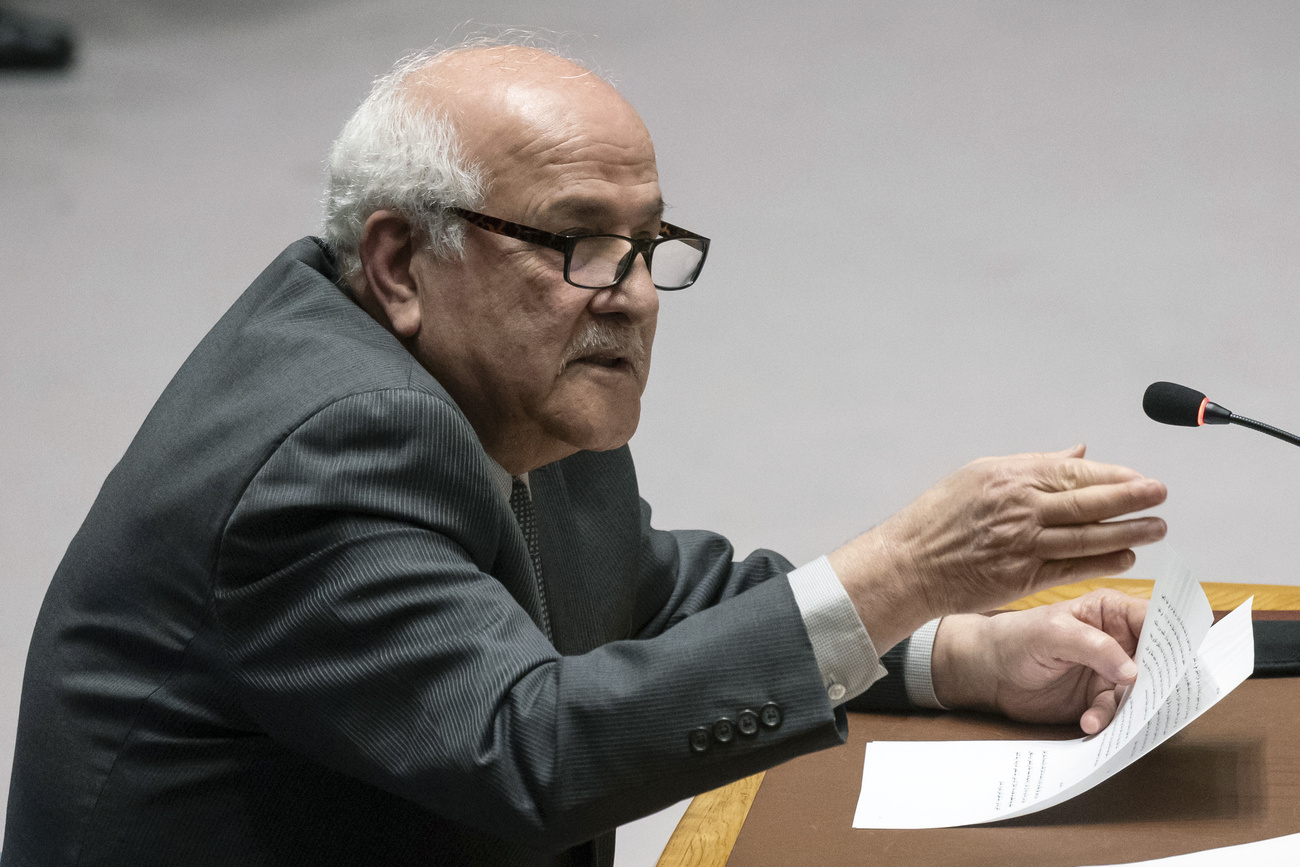
More
Switzerland abstains from vote to grant Palestine full UN membership

In compliance with the JTI standards
More: SWI swissinfo.ch certified by the Journalism Trust Initiative









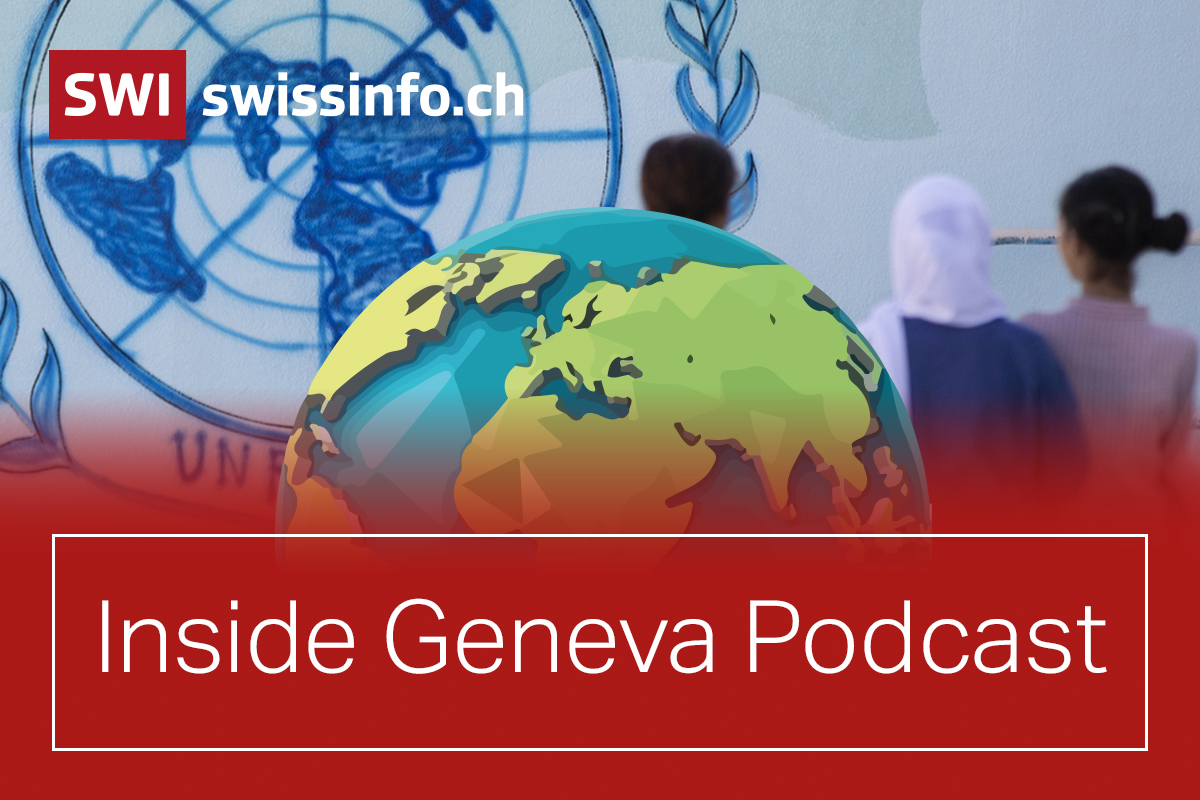
You can find an overview of ongoing debates with our journalists here . Please join us!
If you want to start a conversation about a topic raised in this article or want to report factual errors, email us at english@swissinfo.ch.